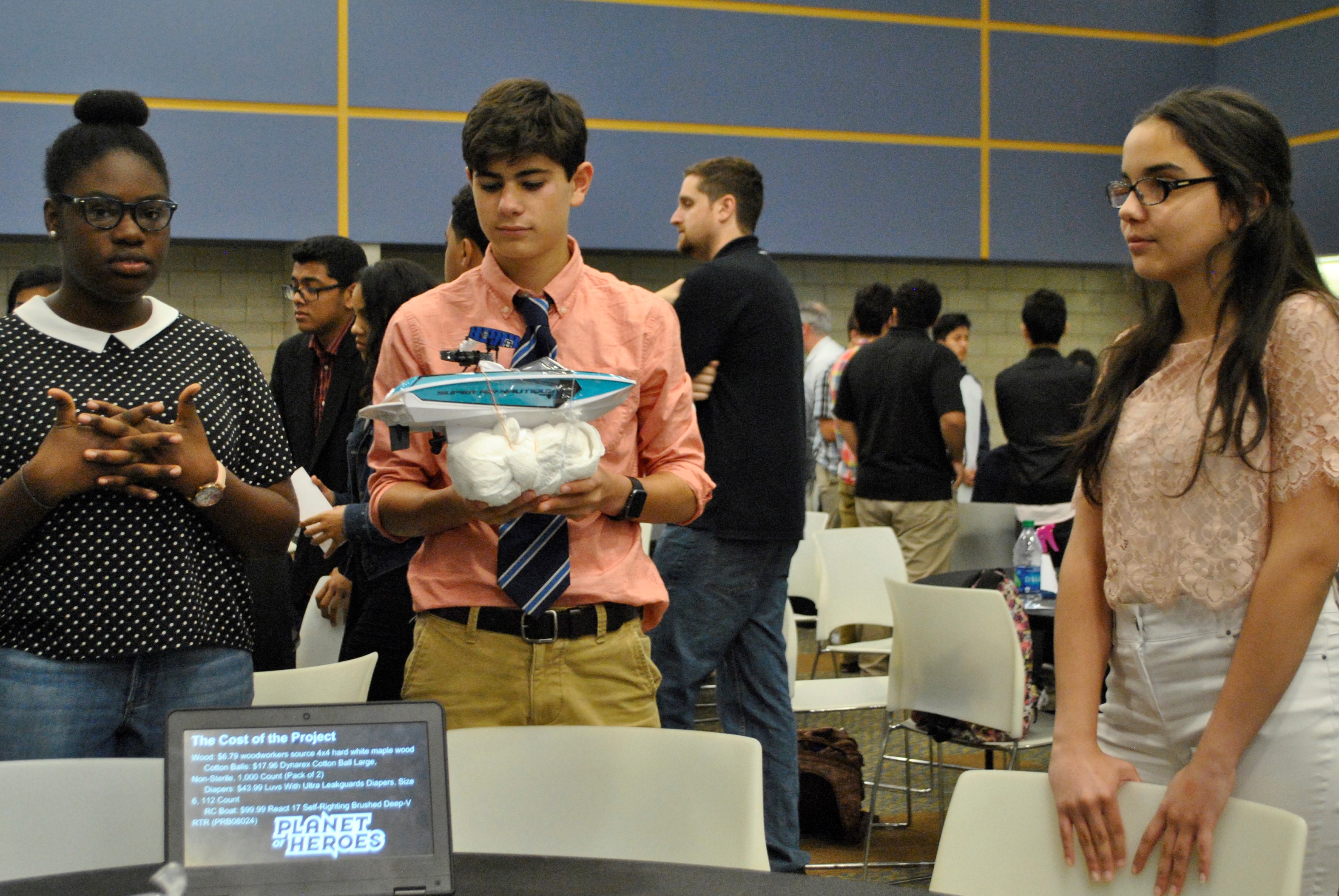
More than 70 students enrolled in the Danbury Early College Opportunity at Danbury High School met with their corporate mentors for the final time this school year at the “Meet and Greet Experience” on June 9.
During the two-hour mentor “meet and greet” held at the Westside campus of Western Connecticut State University, students and their mentors from corporations that include Pitney Bowes, NewOak and other local businesses worked in groups sharing their final products while focusing on presentations skills. Since February, students have worked with mentors to find solutions to environmental problems that can be addressed using technology. The focus of the June 9 event was for students to hone their presentation skills. Under the watchful eye of a mentor with corporate experience, students had the chance to present their projects and then receive professional feedback to improve.
Danbury Schools and Business Collaborative (DSABC) helped support the event through a grant from Fairfield County’s Community Foundation. The foundation, which has awarded more than $207 million in grant to nonprofits, promotes philanthropy, focusing on innovative and collaborative solutions to critical issues impacting the community.
The DECO degree program is a partnership with Naugatuck Valley Community College. Students will begin accelerating their high school requirements so that by sophomore or junior year they can begin incorporating college-level courses. They can expect to complete the Associate Degree in four, five or six years.
DECO students interact with mentors from area corporations through an online platform providing guidance and advice on developing workplace skills. They meet with their mentors face to face several times a year at the meet and greet events.
Heath Durlester, from Pitney Bowes, mentors four students individually and said his group made an air filter fitted for a bicycle to help air pollution. Students Rene Rodriguez, Aliyah Seng and Robert Yastremski were exhibiting their work using Power Point while Durlester, other corporate mentors and students offered feedback.
“We have the ability to help them refine their solution (to a problem), and today is the end result. We never want to squash their ideas,” Durlester said.
“This is part of my passion and love for helping students see where they can take their careers,” Durlester said.
Sam Roberts, also from Pitney Bowes, worked with his students on a project that filters plastics from the ocean. He said it was challenging to help them shape their ideas in the early stages.
“I bring the practicality to them,” Roberts said. “Some things didn’t work. It’s interesting dealing with them and understanding how their psyches work. They teach me that they are bright and have different ideas, and they give me inspiration.”
The DECO students ended up presenting their projects about seven or eight times, each time getting feedback on which to build their skills.
Another Pitney Bowes mentor, Patrick Sweeney watched his students present their Eco-Heroes Project: absorbent material on the bottom of a boat serves to remove oil from the water after a spill. Sweeney said he was impressed with the group dynamics and how everyone fell into a role.
“I try to bring together the school knowledge and the professional skills,” Sweeney said.
Michael LaPerch of Pitney Bowes said that his group built a water conservation system that recycles rain water so it can be sent to areas that need it. LaPerch said he enjoyed seeing the changes in his students.
“Some are no longer shy. They are able to accept their responsibilities,” he said. “It’s fun to watch, and they are very good at accepting feedback.”
Anders Drew, of NewOak, also mentors four students; this is his second year working with the DECO students. This year’s group created an awareness campaign app for de-forestation. Drew said the biggest challenge was getting students focused on deciding what to do and then delegating responsibilities.
“It’s important to work with people in business who know the environment. The DECO program helps bridge that gap. It’s one thing to hear feedback from your teachers, but it’s helpful to hear from someone in the business,” Drew said “(Our participation) is important because what we do is directly tied in with the business world.”
To become a Workplace Learning E-Mentor, contact Ellen Meyst at (203) 797-4845.
